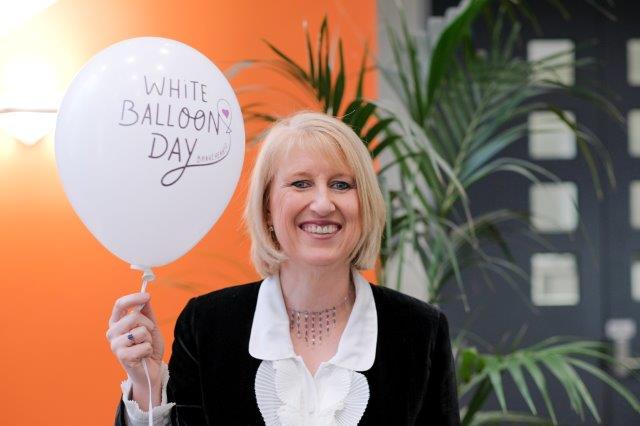It takes a world to eliminate violence against children: World Vision CEO on White Balloon Day
Friday, September 8, 2017

A worldwide commitment is needed to eliminate all forms of violence against children, including sexual abuse, World Vision CEO Claire Rogers said today.
Congratulating Australian NGO Bravehearts for their 21 years working to prevent child sexual abuse in Australia. Ms Roger’s announced World Vision Australia’s participation in a five -year global campaign aimed at eliminating all forms of violence against children
“World Vision’s It takes a world to end violence against children’ aims to catalyse a global movement of people committed to keeping children safe from harm,” Ms Rogers said.
The campaign’s name ‘It takes a world’ was chosen to reflect the fact that no one person, group or organisation can solve this problem alone – which is why we are congratulating Bravehearts on the fantastic work they have done in this field for 21 years on their White Balloon Day she said.
“Small acts when multiplied by millions of people can transform the world. We can all take meaningful action to end violence to against children everywhere.”
Every year more than a billion children experience violence.
“It happens in every country, city and community, costs trillions of dollars, slows economic growth, and most costly of all, it robs children of the chance to experience life in all its fullness.
“World Vision applauds Bravehearts’ tireless work of counselling, education, support, research and lobbying which has made such a difference in the lives of survivors in Australia,” Ms Rogers said.
“Braveheart’s White Balloon Day is a great opportunity to raise awareness around an issue which is too often clouded by stigma. But if eliminating child sexual abuse is a challenge for Australians how much harder must it be in countries that lack the legal framework and resources to address or prevent abuse?”
World Vision Australia is currently working with groups and governments in Timor-Leste, Papua New Guinea, Vanuatu and the Solomon Islands to identify the gaps in national systems so that assistance can be provided, Ms Rogers said.
“Forming strong partnerships with local communities is the key to success, as they take ownership of the initiatives,” Ms Rogers said. “We are also researching these countries to determine how aid funds can help governments prevent violence against children at home.”
“The aim is to build on success of earlier programs, such as the Child Protection and Advocacy Project funded in Indonesia in 2013 by the Australian government. This project equipped local leaders to educate their communities, monitor child well-being and advocate on their behalf, and link survivors to local services.”
"We've had great success in Indonesia with child protection going from being a non-issue to 74% of parents now saying they understand the rights of children!" Ms Rogers said.
The program changed attitudes by empowering children and parents with information, and partnering with service providers and the government to build systems that protect children, Ms Rogers said.
“The program reached more than 400,000 children and 800,000 adults. Local officials say that more cases are making it through to law enforcement and prosecution in court. This change will increase as committees continue to do good work with support from the village governments. We’d like to see this replicated and scaled up to reach more children.”
For interviews with Claire Rogers, contact Leah Swann: 0421 857 591
Media Releases,
Asia and the Pacific,
Claire Rogers,
Pacific,
Sexual Abuse,
Solomon Islands,
Vanuatu,
World Vision
Back to all Results